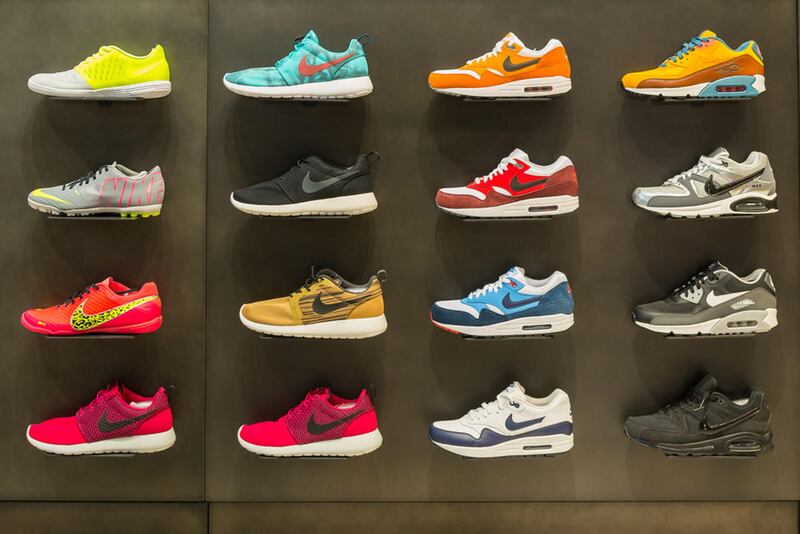The news this week that Nike will no longer sell its clothing and shoes on Amazon could be the start of something bigger. Consumers have grown used to having one-stop shopping in nearly every aspect of their lives. Go in to any Super Target and you can find everything from designer clothes to a toilet plunger; hop on Netflix and find thousands of titles ranging from the most recent blockbusters to obscure Japanese shorts; sign in to Amazon and buy a $3 dinosaur-shaped ladle or a $60,000 Rolex.
But all that convenience also means consumers are overwhelmed with options, and it could come at the cost of one-on-one relationships with our favorite brands.
Two years ago, Nike started selling its clothes and shoes directly to Amazon partly in an effort to stop third-party sellers from throwing counterfeit product into the marketplace. The Wall Street Journal reported Nike was disappointed that it didn’t work well enough or give it the control it wanted in getting rid of fake product.
Now Nike says it’s ready for a little more face time with its customers (or at least screen time). Nike executive Heidi O’Neill told Yahoo Finance that it wants to build “unbreakable relationships” with consumers.
“We love the fact that we’re breaking down the walls between stores and digital and tech and bringing amazing consumer experiences to life,” O’Neill said.
David Kahan, CEO of Birkenstock Americas, felt validated by Nike’s decision to break ties with Amazon since he did the same thing three years ago.
“As a brand, your brand equity and the special relationship you have with your end users, your consumers, and in our case — and I am sure Nike’s as well — what we call our brand ‘fans’ can never be compromised. It is sacrosanct,” Kahan told Footwear News. “And any ‘partner’ or potential business partner must share these same brand values.
“And any ‘partner’ or potential business partner must share these same brand values,” he continued. “If they don’t, then you cannot be in a relationship.”
Nike has a big enough brand name and loyal following that it’ll likely be just fine leaving Amazon. Jeffries financial analyst Randy Konik told CNBC that they doubt Nike will be the last to make this move.
“We believe many strong apparel (and even non-apparel) brands will continue to avoid or curb their relationships with Amazon in the future,” Konik said.
This direct-to-consumer approach is manifesting itself in more than just online shopping. We’re also seeing it in the wave of entertainment streaming options flooding the market.
This past week, the launch of Disney Plus meant pulling all Disney, Pixar, Marvel and Star Wars content off of Netflix.
Disney Chairman and CEO Bob Iger admitted to CBS that his company was in a unique position to go out on its own.
“While we believe we’re competing with others, in reality there’s only one Disney with those assets,” he said.
But the long list of entertainment companies deciding to go solo — Peacock from NBC Universal, HBO Max from Warner Media, Apple TV Plus with original content — is causing a bit of streaming fatigue. Even so, a staggering 10 million people signed up for Disney Plus in the first day, and Barclay analysts suspect Apple TV Plus could have 100 million subscribers within a year. But only time will tell if any more standalone streaming services will be able to weather venturing out on their own.
The big, powerful companies like Disney, Nike and Apple will likely fare just fine. But smaller brands and entities may not be willing to leave the protective wing of those comfy umbrella companies of Netflix and Amazon.
It’s time for consumers to make a choice with their bank accounts for which business model they prefer. One-stop shopping at online conglomerates can be convenient, but the overwhelming load of options can cause brands to get lost in the pile. A more direct brand-to-client approach could mean more personalized moments for shoppers with their favorite brand. But having to click on separate websites for these experiences or (gasp) actually walk into a store could be more effort than consumers are willing to give for a certain brand.


